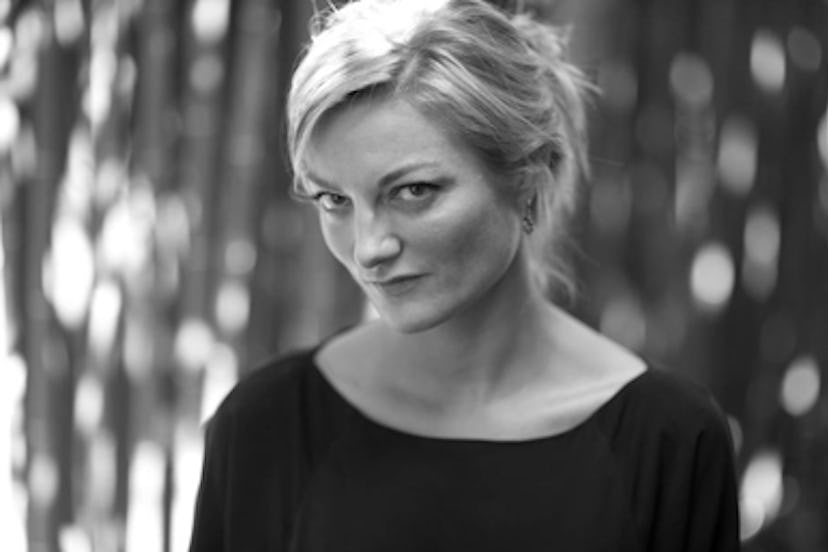Five Minutes With Waste Land Director Lucy Walker
The Oscar nominated documentary, Waste Land, follows Brooklyn-based artist Vik Muniz on his journey home to Brazil to raise awareness for a lost society of garbage pickers in the world’s largest trash heap. He arrived...

What appeals to you most about documentary filmmaking? I love fiction as well and will probably move into this format as some point. For now, I just think that there is a great deal of excitement about telling real stories through the documentary filmmaking techniques. You get to give the audience a peak into these closed or far away worlds, just like going to Tibet and climbing Everest with the blind (Blindsight), or seeing inside the Amish community (Devil’s Playground) and what it’s like in the world’s largest garbage dump (Waste Land).
What challenges are specific to being a female director? Directing is a very challenging job in the first place. Being a female director, takes a big leap of confidence, ambition and self proclaim. It’s a high stakes game- financially. It can also be a very physically challenging job. And, it includes a lot of technological aspects of the job that just haven’t been very female friendly, traditionally speaking. That being said, it’s wonderful to be representing an under represented voice in the film community. I really enjoy as a women to bring a different perspective and different type of story to life. It’s a reward and a challenge.
I was really interested in Vik Muniz’s artwork and meeting him. I thought it may be interesting to do a film about him, but I wasn’t sure what the story was and I didn’t see how I could make a really good profile of an artist. After we met, we had these conversations that were really organic to us. The conversations were full of respect and excitement about each other’s work. We discovered that we shared a mutual obsession with garbage. And since Vik was very involved with social projects and collaborating with non-artists in these ways, we decided to focus on merging these two things. I had heard of the catadores, or garbage pickers as they are known, in Brazil. I knew that Vik had grown up poor in Brazil and that he was a bit haunted in his middle age by the success he had achieved. He was looking for meaning. So the idea of taking him back to his homeland to see people who came out of a similar situation, but with a very different outcome… and to be able to help these people was very appealing for him as well as the storyline.
Why do you think it was so important to tell the story of the catadores? These people are the most disregarded, and discarded, people in the world. To a lot of people they register as human garbage or human waste. They were so ostracized by the Brazilian culture. It’s a shame, because these people really turned out to be the opposite of the expectation. It is such a radical challenge to prejudice.. We discovered that they were so resourceful and so inspiring, each and everyone one of them. They hadn’t been very lucky in life, but they had taken that luck to live lives of dignity, courage and positivity … it is really fascinating to watch.
After the movie ended, how did this project continue to change the lives the people involved? In many ways it’s been a real life fairy tale. All of the proceeds from the art project and a percentage of film profits are going back to the catadores, providing them the resources to better their community. Recycling laws are changing in Brazil due to the attention that was received. Pickers will never be ostracized in the same way in Brazil.
Are your suspicions, thoughts and ideals typically confirmed? I’m a human being as prejudiced as anyone else. As I filmmaker I’ve begun to be able to anticipate a lot of what people are going to say and what will happen. The big surprise for me in this film was that the situation wasn’t anything like the things we had worried about the most. We were worried that all the inhabitants of Jardim Gramacho would be convicts with mental health issues, criminal records and overall very dangerous. I was surprised by how incredibly brilliant these people were. It makes you think a lot about society. It’s really a fascinating way of reflecting on our lives, in a rich way.
I think it’s the best work I’ve ever done. It was like finding human treasures in the trash. It’s so warming to know that human beings can respond to challenges in such beautiful ways.
This film is nominated in this year’s Academy Awards for Best Documentary Feature. How does it feel to have your work acknowledged by the Academy? It’s a real privilege for this movie to be embraced and my directing to be honored. I am so humbled and honored to have this nomination.